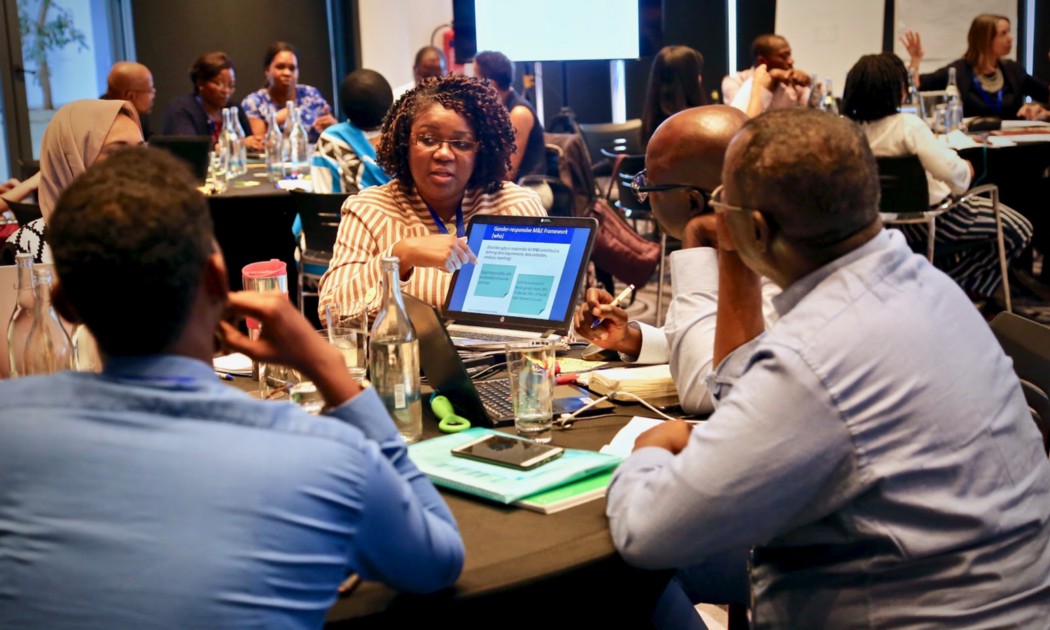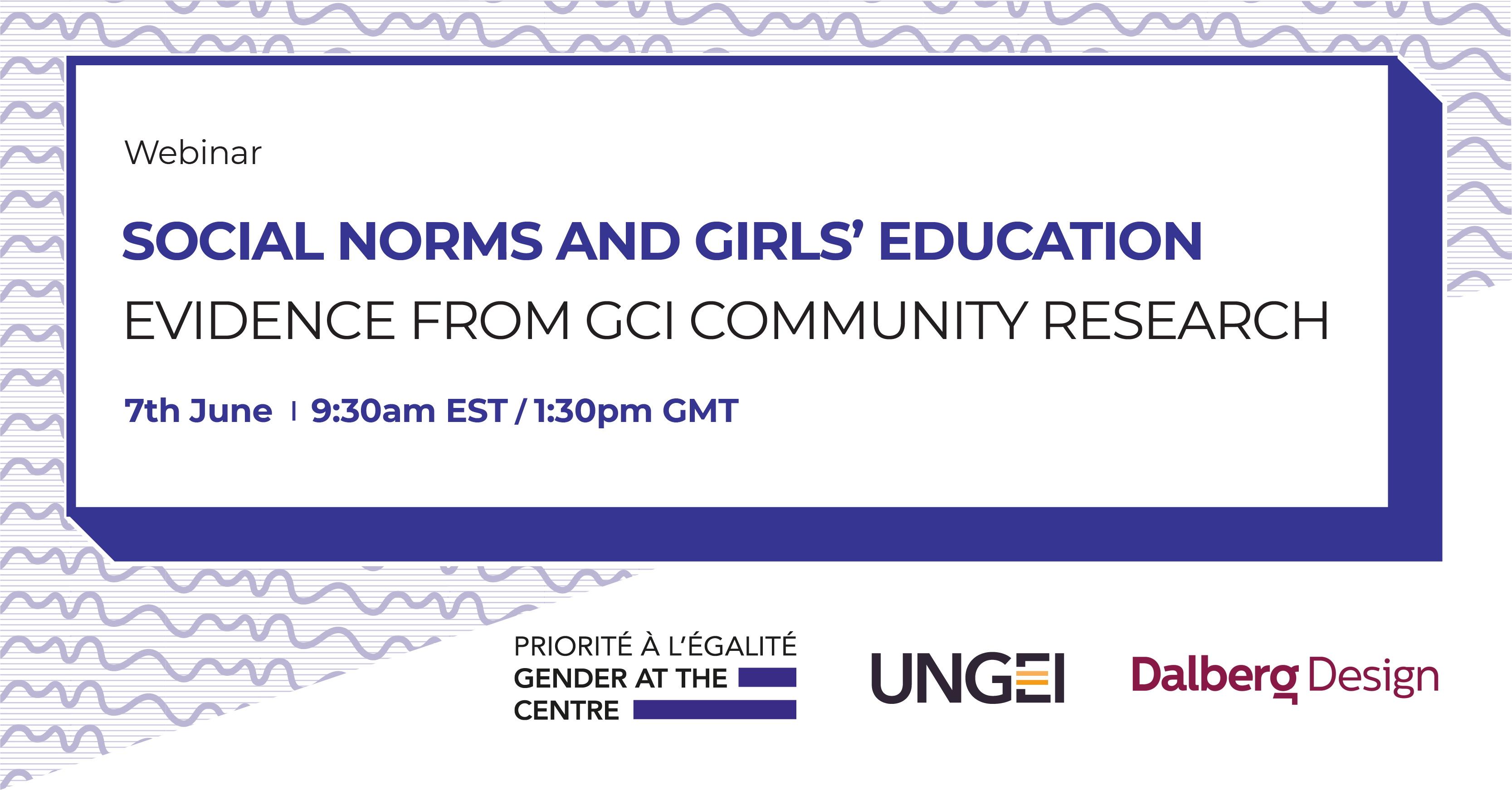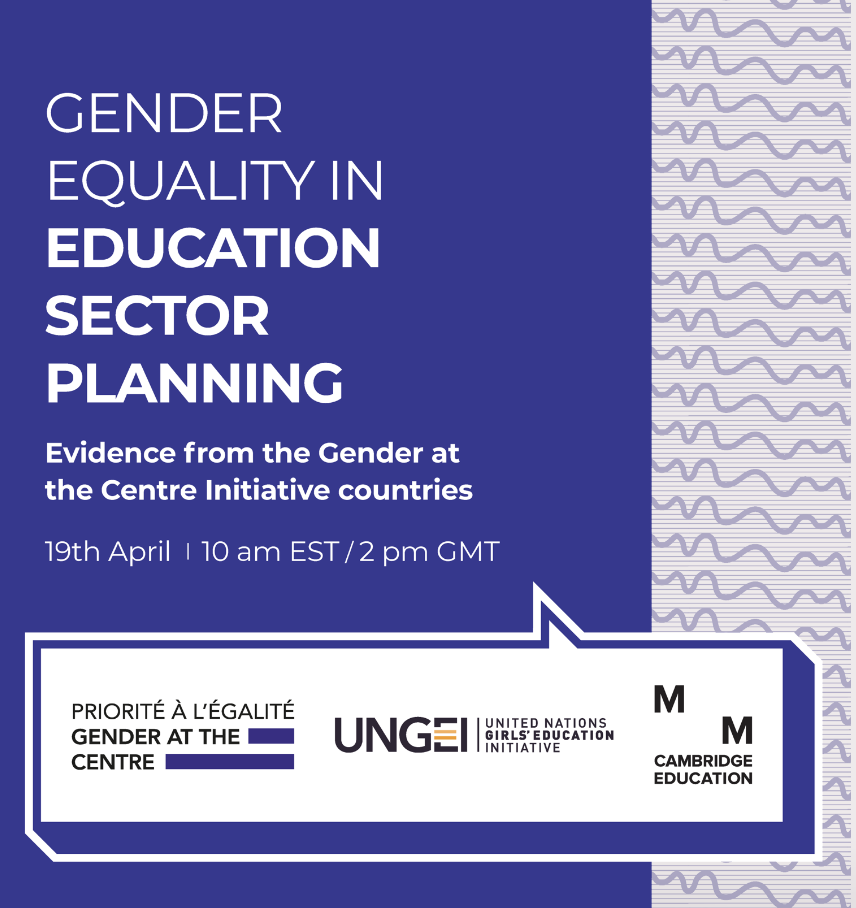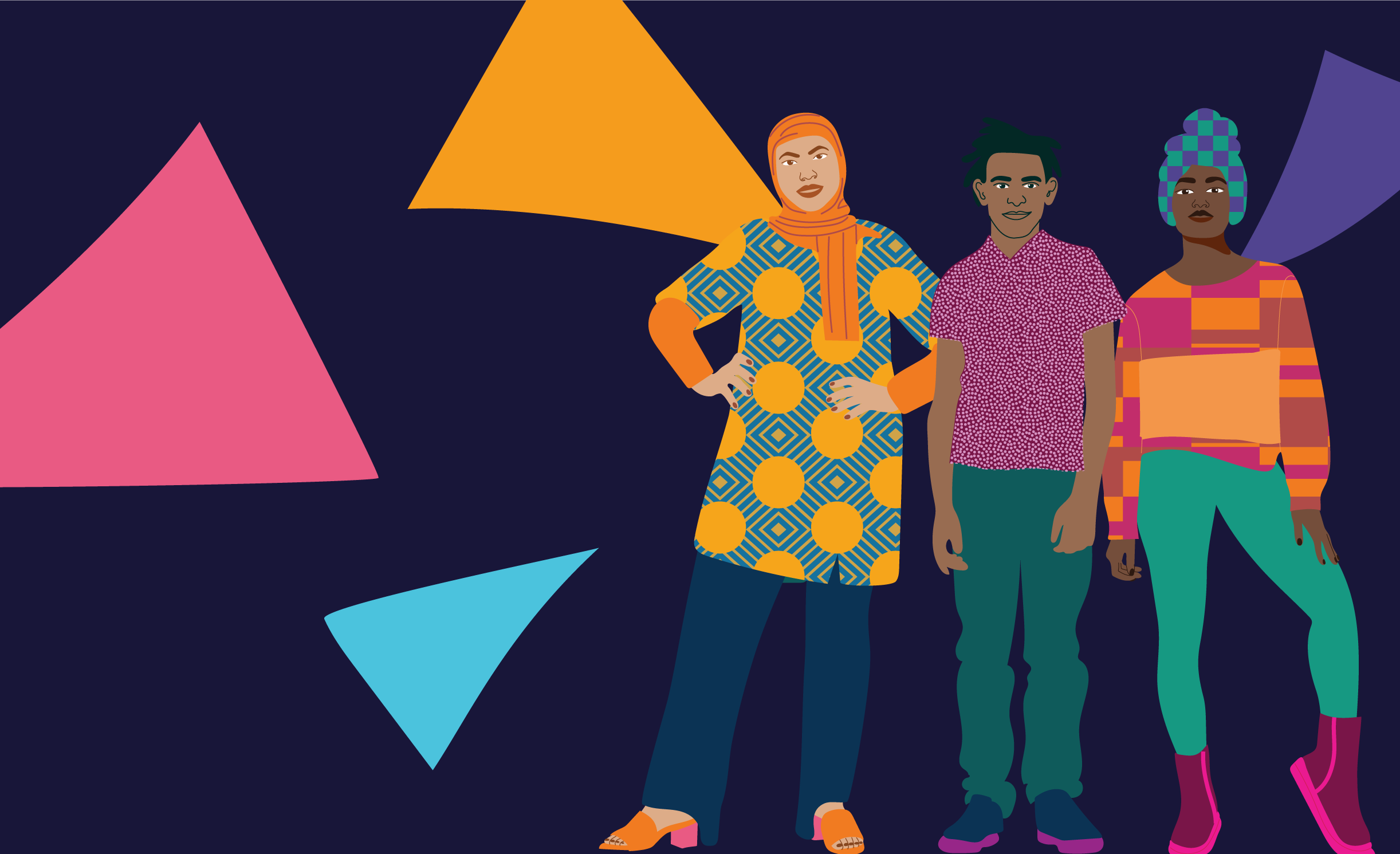For education to realize its gender-transformative potential, boys and girls must have equal access to, and benefit equally from, education. To achieve this goal, we need education systems that are gender-responsive by design. The Gender-Responsive Education Sector Planning (GRESP) programme aims to do just that. To date, UNGEI and partners including Plan International, FAWE, ANCEFA, UNICEF, UNESCO IIEP and the Global Partnership for Education (GPE), have led national and regional workshops for education stakeholders in 28 countries across Africa and Asia, working with ministry of education delegations, local education groups and civil society organisation representatives to advance gender equality in and through education.
As well as embedding gender equality across every aspect of the education system, a forthcoming independent review of the GRESP programme highlights how critical it is for ministries of education to collaborate with other ministries, networks and coalitions to truly bring about sustainable and transformative change. As a delegate from Plan Zimbabwe, one of the GRESP programme’s institutional partners, put it, “In order for us to do it [GRESP] properly, we all need to walk together.”
Since a regional GRESP workshop held in Nairobi in 2018, the Zimbabwe delegation has committed to ‘walk the walk’ for gender equality in education. The GRESP workshop both inspired and empowered the Zimbabwe delegation that attended — a mixture of government officials, civil society activists and education practitioners — to take specific actions towards integrating gender into education sector planning processes.
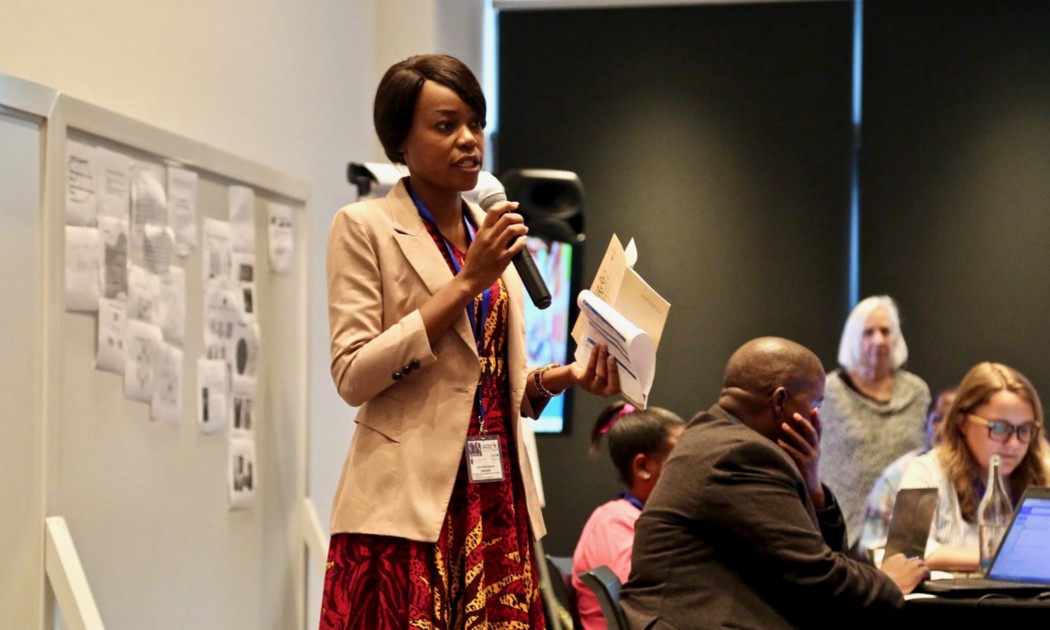
Advancing gender equality in education: A technical assistance boost
In fact, the Zimbabwe delegation used the GRESP workshop space and the new networks they developed there to immediately amend the Terms of Reference for its forthcoming education sector plan (ESP) review, ensuring that the government’s ESP development team would have the technical capability to undertake the gender analysis needed to meaningfully integrate gender into the ESP. The GRESP workshop, which builds on the Gender at Work gender analytical framework and feminist pedagogy, was instrumental in helping the Zimbabwe delegation to articulate these additional technical needs and deepen key planning officials’ understanding of the technical requirements of a truly gender-responsive education sector plan.
Lydia Madyirapanze, who leads FAWE’s work in Zimbabwe explains, “In terms of the consultants, they really took into consideration what the members of the GRESP team continue to talk about because if you look at the previous [education sector] plan, yes, it looked at some components, but with this new one, you can tell that they are so specific, in terms of saying, if we are looking at school related GBV, what is the nature and what is the extent of this violence? What is currently there at the country level, who is working on SRGBV as a new and emerging issue that is affecting the education system? What are the responses, what is working, what can be done?”
For the Zimbabwe delegation, the GRESP workshop’s presentations on data use and analysis also galvanized more intentional engagement around gender issues. Inspired by these discussions and analysis, Zimbabwe’s Ministry of Education then committed to conducting a review of their ESP’s Monitoring and Evaluation (M&E) framework, considering how to include new qualitative, gender-responsive indicators in their next ESP. The Zimbabwe delegation acknowledged that the country’s previous focus on gender equity and reporting on gender parity in education was unlikely to support a more transformative approach. Delegation members noted that the approaches and insights introduced in the GRESP programme should be used to strengthen their education management information system (EMIS) overall, ultimately creating an enabling environment for progress towards gender equality in education.
Opening up the policymaking space to more collaborative working
Whilst the emerging success of integrating gender analysis into Zimbabwe’s education sector planning processes built on the momentum, strategies and leadership developed during the GRESP programme, the country’s history of engagement with gender issues in education, in particular by active civil society organisations and networks of feminist activists, also inspired the more joined-up approach to the education sector reviews and planning discussions undertaken throughout 2019 and into 2020.
Two key factors were at play here — government officials who were more open to active engagement with civil society, and civil society organisations that were more confident about their role in policymaking processes. National coordinator of FAWEZI Lydia Madyirapanze also noted how the collaboration developed building from the GRESP programme’s facilitation, “We were a team but the Ministry also allowed us to lead some of the processes. We gave feedback to the Permanent Secretary about the GRESP process [and workshop] and what we intended to do to influence the current processes and the next ESP.”
These kinds of connections have been consistently acknowledged by the GRESP programme’s designers and facilitators. Joanne Sandler is one of the programme’s lead facilitators, who confirmed, “we are in the business of building communities through this programme. We want people to come together, to ideate, build and share”.
